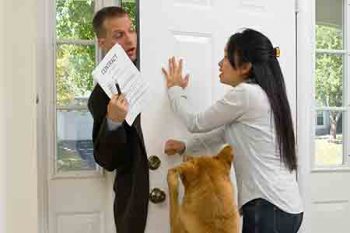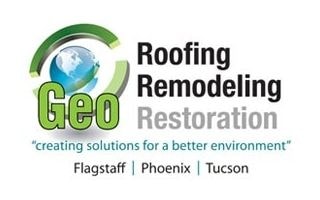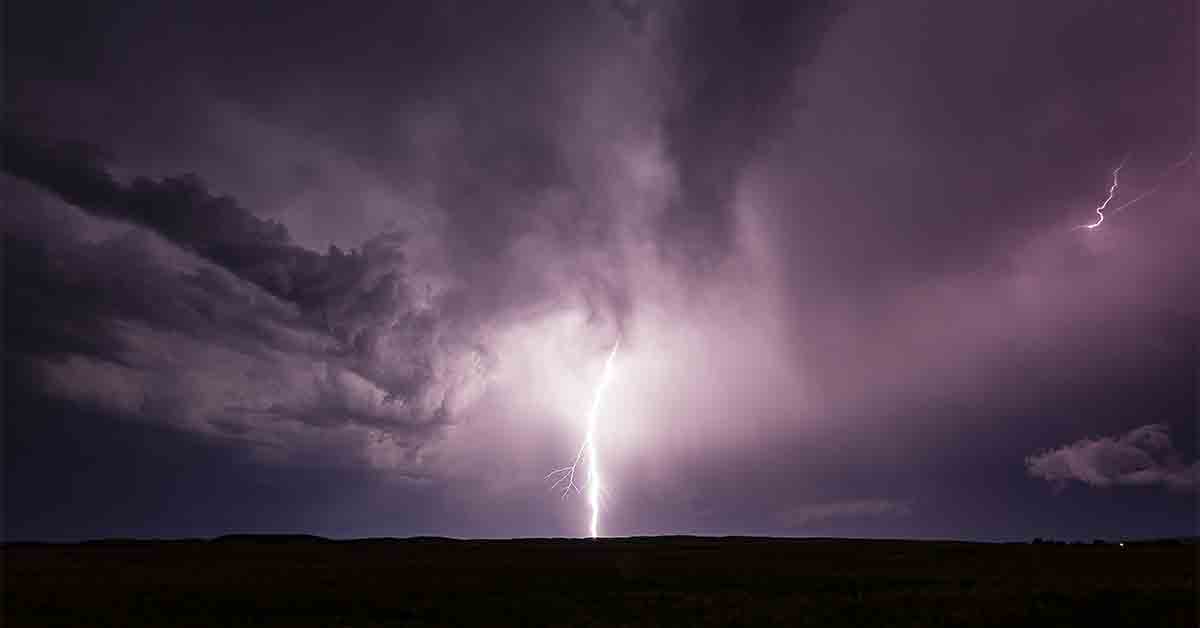What Is a “Storm Chaser?”
Storm chasers are opportunistic roofing contractors who target neighborhoods recently affected by strong storms that caused rain, wind, and hail damage. After a damaging storm, these contractors will go door to door and sell roof repair services. These contractors know that local roofing companies are overwhelmed after a storm, so they use computer programs and their knowledge of insurance companies to estimate the repair cost. Typically, these contractors start the sales process by offering potential customers a free roof inspection.
The Risks of Working With “Storm Chasers”
Often, these contractors offer roof repair services to desperate homeowners who have no reason to suspect that they’re the victims of a scam. These roofers typically aren’t listed with the Better Business Bureau and may not even be licensed with the state.
No Workmanship Warranty on Roof Repair Services
Most projects completed by storm chasers are substandard, completed as cheaply and quickly as possible. Since these contractors don’t have physical addresses or permanent phone numbers, it’s nearly impossible to follow up with a workmanship warranty in case anything goes wrong with the roof.
No Regard for Building Code Requirements
Due to the desire to complete the repair as quickly and cheaply as possible, storm chaser roofing contractors typically disregard building code when performing the repair. If homeowners hire a roofing contractor that performs work that doesn’t meet regulations, they may have to pay more to a reputable roofing contractor to fix those mistakes. Homeowners face high fines as a result of building code violations that could result in a lien being put on the house.
How To Identify a “Storm Chaser” Roof Repair Scam
To protect themselves, homeowners should be able to recognize the tactics that these scammers use.


Beware of any “roofer” who goes door to door to sell their services. Reputable roofing companies will have proof of insurance and licensing. For roofing services that you can trust, call Geo Roofing today!
Door-To-Door Salespeople
Storm chasing roofing contractors typically sell their services by knocking on doors of homes affected by storm damage. Be wary of anyone offering roof repair in this manner. Sometimes these “contractors” pretend to be from a local roofing company that may have performed previous work on the home. Don’t be fooled. Ask for proof of a valid license permitting the contractor to perform roofing services. Additionally, reputable roofing companies will provide clear documentation and references to establish their credentials. If you’re unsure about a contractor’s legitimacy, it’s wise to seek out information from trusted sources or do some research online. Always ask questions about how to fix a leaking roof, as a legitimate contractor should be able to explain the process comprehensively and provide insight into their methods and materials. Additionally, it’s crucial to conduct thorough research before hiring any roofing contractor, especially in the wake of a storm. Look for reviews, ask for references, and verify their credentials to ensure you are choosing a reputable professional. Understanding the impact of weather on roofing can also help homeowners make informed decisions about the necessary repairs and maintenance after a storm, ultimately protecting their investment.
Upfront Payment Required
If the contractor insists on full payment upfront, especially in cash, stay away. This practice is a clear indication that the contractor isn’t reputable. There’s a good chance that if homeowners pay a storm chaser contractor in cash, they’ll never see them again.
Offer To Pay Deductible
Do not trust a roofing contractor who offers to waive the homeowners’ insurance deductible. This practice is illegal, and it is considered insurance fraud. If homeowners let a contractor pay their deductible, they’re putting themselves at risk for legal action. Make sure to examine the homeowners’ insurance policy and local legislation regarding insurance fraud to avoid this trap.
Cause Damage During “Free Inspection”
As mentioned earlier, storm chaser roofing contractors typically offer a free “roof inspection. ” Sometimes, these schemers will create damage if the roof’s damage isn’t enough to warrant extensive repair. They may use golf balls, hammers, or other heavy objects to generate enough damage for a significant insurance payout. This practice is also considered insurance fraud, and homeowners would do well to avoid it by listening and observing when a suspected scammer is performing an inspection. Homeowners should be aware of the common roof damage causes, such as severe weather events, fallen branches, and wear and tear over time, which are legitimate indicators of necessary repairs. By being informed about these genuine issues, homeowners can better differentiate between legitimate contractors and those looking to exploit them. Additionally, seeking a second opinion from a trusted professional can serve as a safeguard against potential scams and ensure that any needed repairs are performed honestly and effectively.
Other Roofing Scams To Be Aware Of
While their convenient timing can identify some storm chasers, there are also other roofing scams to avoid as homeowners. Since most homeowners only have to replace their roof every ten to twenty years, it’s easy to fall for a clever scheme.
Down Payment for “Materials”
Be wary of any roofing company that requires a down payment before the work begins. Typically, once a homeowner files a claim with their insurance company, the insurance company will send one of their adjusters to evaluate the damage. Then, the insurance company will issue the homeowner a check for an initial payment to the roofing company. Then, when the roofers complete the job, the insurance company will send the rest of the amount directly to the roofing company.
When a “roofer” asks for down payment upfront, it’s possible homeowners will never see that person again. In most down payment scams, the roofer will convince the homeowner to sign the check over as a down payment and then disappear. Knowing the proper process behind major home repair does a lot to prevent homeowners from falling into these sorts of traps.
Fluctuating Bids
This roofing scam is also known as the “elevator ride.” In this scam, the “roofer” offers a low bid at first, knowing that the homeowner doesn’t have much experience with roof replacements. Then, once the job begins, a ton of “unexpected” costs come up, such as discovering new damage or an increase in the cost of materials. However, reputable roofing companies won’t do this to their customers. While material prices do sometimes come up, contractors usually get a few weeks’ notice, meaning it shouldn’t affect the accuracy of bids.
How Can Geo Roofing Help?
As a local leader in the Phoenix roofing industry, Geo Roofing is proud to provide high-quality, honest roofing services to all of its customers. We understand that significant repairs such as roof repair or replacement cause homeowners a ton of financial stress. We don’t overcharge or sell you on services you don’t need. No matter the type of roof, our team of contractors is trained to handle it. Call today to get started and get a free estimate! Our commitment to transparency ensures that you receive the best value for your investment without any hidden fees. Whether you need minor fixes or comprehensive roof repair services in Phoenix, we are here to guide you every step of the way. Trust Geo Roofing to give your home the care it deserves, safeguarding your peace of mind and your property. In addition to our exceptional repair and replacement services, we also offer regular roof maintenance benefits that can extend the life of your roof and prevent costly damage down the line. By scheduling routine inspections and maintenance, you can catch minor issues before they escalate into major problems, saving you both time and money. Our dedicated team is here to ensure your roof remains in top condition for years to come, giving you peace of mind.

